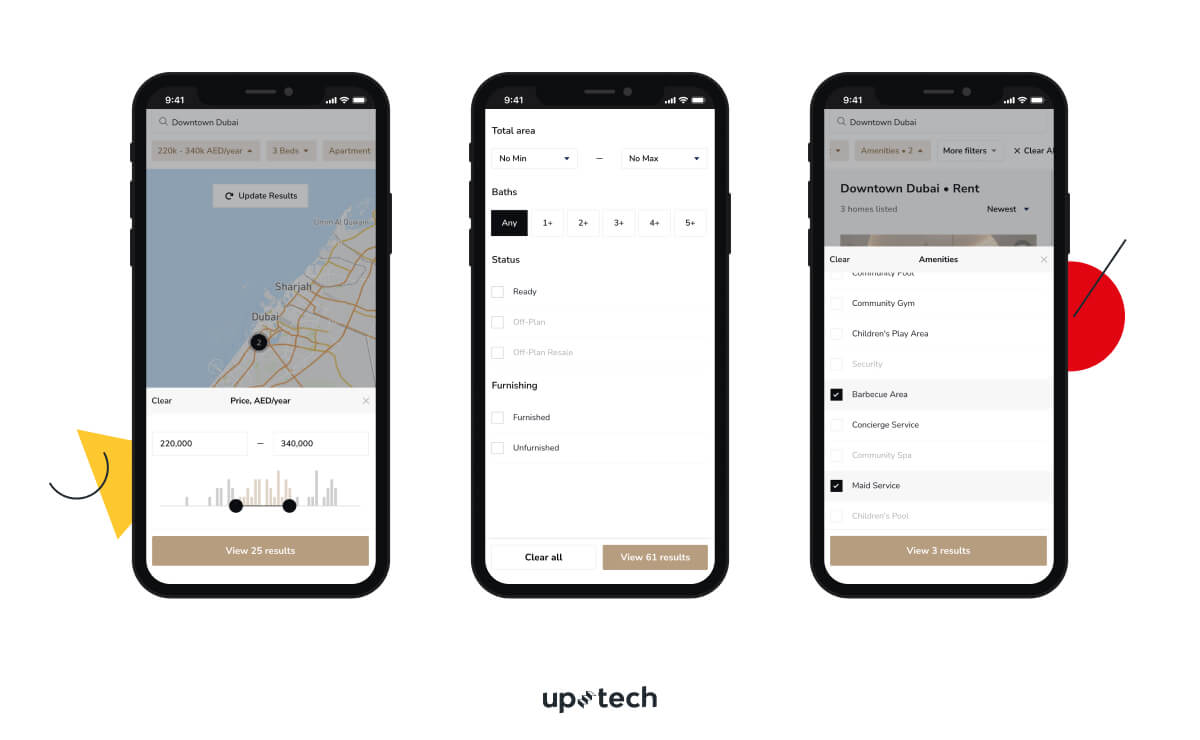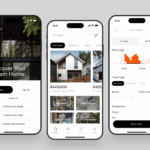software to track mobile home real estate transactions sets the stage for an engaging exploration into the critical role of technology in modern real estate management. As the mobile home market continues to grow, the need for effective tracking software becomes increasingly important to streamline transactions, improve accuracy, and enhance decision-making processes. Various software solutions are available, each designed to address specific needs within the mobile home sector, from basic tracking functionalities to comprehensive integration with property management systems.
In this context, understanding the key features of tracking software becomes essential for stakeholders aiming to optimize their operations. Features such as data analytics, user-friendly interfaces, and seamless integration capabilities not only facilitate efficient management of mobile home transactions but also empower investors to make informed decisions based on accurate data. By examining popular software options, implementation strategies, and real-world case studies, one can gain valuable insights into the effectiveness of these technological tools in the ever-evolving landscape of mobile home real estate.
Overview of Software for Mobile Home Real Estate Transactions
In today’s fast-paced real estate market, utilizing specialized software to track mobile home transactions has become essential for agents, brokers, and investors alike. The mobile home sector operates uniquely, often requiring tailored tools to efficiently manage and analyze data specific to this type of property. By implementing software solutions, stakeholders can streamline their operations and enhance decision-making processes, ultimately leading to better outcomes.Software designed for mobile home real estate transactions is varied and caters to different aspects of the buying, selling, and managing of mobile homes.
These tools typically include features that allow users to track listings, manage customer relationships, run market analyses, and automate documentation processes. Understanding the types of software available is crucial for those involved in mobile home real estate, as leveraging the right technology can significantly improve efficiency and accuracy.
Types of Software for Mobile Home Transactions
The mobile home real estate market benefits from several software categories, each addressing distinct needs and functionalities. Here’s a quick overview of the most relevant types:
- Transaction Management Software: This type allows agents to manage all aspects of a transaction, from initial offer to final closing. It often includes tools for document management and e-signatures to expedite the process.
- Customer Relationship Management (CRM) Software: A CRM specifically tailored for real estate can help track leads, manage client interactions, and automate follow-up processes, ensuring no potential sale falls through the cracks.
- Market Analysis Tools: These tools provide valuable insights into market trends, enabling users to assess pricing strategies and identify profitable opportunities within the mobile home sector.
- Property Management Software: For those managing multiple mobile home parks or units, property management software streamlines operations by organizing tenant information, lease management, and maintenance requests.
Integrating mobile home real estate transactions with existing property management systems can create a more cohesive operational framework. Such integration allows for seamless data sharing between platforms, reducing the risk of errors and enhancing overall efficiency. For example, by connecting transaction management software with property management systems, agents can automatically update tenant information and transaction statuses in real time, ensuring everyone stays informed.In conclusion, the right software not only facilitates mobile home transactions but also enhances the overall management of these properties, ensuring smoother operations and improved outcomes for all parties involved.
Key Features of Tracking Software
In the ever-evolving world of mobile home real estate, tracking software has become an essential tool for investors and agents alike. With the right features, this software can streamline processes, enhance transparency, and ultimately lead to more informed decisions. The core features that tracking software should possess play a pivotal role in managing transactions effectively.One of the standout features of tracking software is its ability to automate the transaction process.
Automation minimizes human error and saves time, allowing users to focus on more strategic tasks. This includes automatic reminders for important deadlines, such as inspections or offer submissions, which ensures that no crucial step is overlooked.
Essential Features of Tracking Software
The following features are crucial for any tracking software designed for mobile home real estate transactions. They not only enhance usability but also improve the overall efficiency of the real estate process.
- Transaction Management: A comprehensive overview of all transactions, including status updates and document storage, is vital. This feature allows users to track progress in real-time, ensuring that everything is on track.
- Data Analytics: This feature analyzes transaction data to uncover trends and insights. For instance, investors can identify the best times to buy or sell mobile homes based on market fluctuations.
- Reporting Tools: Robust reporting capabilities help users generate detailed reports on sales, expenses, and profits, allowing for better financial planning. This can help in setting realistic investment goals.
- User-Friendly Interface: An intuitive layout simplifies navigation, which is especially important for those who may not be tech-savvy. This encourages more frequent use and maximizes the benefits of the software.
- Integration with MLS and Other Platforms: Seamless integration with Multiple Listing Services (MLS) and other real estate platforms allows for real-time data exchange, enabling users to access the latest listings and market data without switching applications.
The role of data analytics in enhancing decision-making for real estate investors cannot be overstated. By leveraging historical data and predictive analytics, investors can make informed decisions based on market trends. For example, if a data analysis indicates a rising demand for mobile homes in a particular region, an investor might decide to increase their portfolio in that area, anticipating higher returns on investment.
Additionally, tracking software can highlight underperforming assets or areas, guiding users to adjust their strategies accordingly.
“Data-driven decisions are the backbone of successful real estate investments.”
With these features in place, tracking software evolves into a powerful ally for anyone involved in mobile home transactions, making the entire process smoother and more efficient.
Comparison of Popular Software Options
When it comes to tracking mobile home real estate transactions, choosing the right software is crucial for managing listings, sales, and customer interactions effectively. With a variety of options available, understanding the strengths and weaknesses of each can help streamline operations and improve overall efficiency. Below is a comparison table of some of the popular software choices in the market today.
Software Comparison Table
This table provides a clear overview of leading software options, highlighting their key features, strengths, and weaknesses.
| Software Name | Strengths | Weaknesses |
|---|---|---|
| Mobile Home Pro | Comprehensive tracking features, user-friendly interface, good customer support | Higher pricing tier, limited customization options |
| HomeTracker | Cost-effective, flexible reporting, integrates with other real estate tools | Slower customer service response time, occasional bugs in updates |
| REIPro | Detailed analytics, robust marketing tools, mobile app available | Steeper learning curve, can be overwhelming for new users |
| Real Estate Magic | Affordable pricing, personalized support, easy setup | Limited advanced features, not suitable for larger operations |
User Experiences and Reviews
User experiences play a critical role in assessing the effectiveness of any software. Here’s a summary of feedback from current users of the most popular options:
Mobile Home Pro
Users appreciate its intuitive design and the breadth of its tracking capabilities. A user stated, “It’s made my job easier and keeps everything organized.” However, some noted the cost could be prohibitive for smaller businesses.
HomeTracker
This software has received praise for its affordability and flexibility in reporting options. One user commented, “Great value for money, but I wish the support team was a bit quicker to respond.”
REIPro
Known for its powerful analytics, users find it beneficial for making data-driven decisions. However, a common critique is its complexity, with one reviewer saying, “It took me a while to get the hang of it, but now I can’t imagine working without it.”
Real Estate Magic
Users love the personalized support and ease of setup. A satisfied customer mentioned, “Perfect for small-scale operations, but I crave more advanced features for scaling up.”
“Choosing the right software can significantly impact your efficiency in managing mobile home transactions.”
Implementation and Setup Process: Software To Track Mobile Home Real Estate Transactions
Implementing tracking software for mobile home real estate transactions might seem daunting at first, but with the right approach, it can be a smooth experience. Setting up the software requires careful planning and execution to ensure all features work properly and meet your needs. The following steps Artikel a comprehensive guide to successfully integrate tracking software into your mobile home real estate business.
Step-by-Step Guide to Implementation
Before jumping into the software setup, there are a few prerequisites to ensure a seamless integration. Having a clear plan will minimize hiccups along the way. Here’s how to get started:
1. Define Your Objectives
Determine what you want to achieve with the software. This could include tracking sales, managing leads, or analyzing market trends. Setting clear goals helps in choosing the right software features.
2. Choose the Right Software
After researching options, select the software that aligns with your objectives and budget. You want a solution that not only fits your needs but also is user-friendly for your team.
3. Establish a Dedicated Team
Form a small team responsible for the implementation process. This team should include a project manager, a tech-savvy member, and someone familiar with mobile home real estate.
4. Prepare Your Data
Gather all necessary data that the software will require, such as current listings, past transactions, and customer information. Cleaning and organizing this data will streamline the setup process.
5. Install the Software
Follow the vendor’s installation guide. This often involves downloading the software, setting it up on your servers or cloud, and configuring the initial settings.
6. Integrate Existing Systems
If you have existing tools or databases, ensure they are integrated with the new software to avoid data silos. This may require API connections or manual data transfers.
7. Customize Features
Adjust the software settings to meet your specific needs. This includes customizing dashboards, reports, and user access levels.
8. Train Your Team
Conduct training sessions for your team to ensure everyone understands how to use the software effectively. This is crucial for maximizing the software’s potential.
9. Launch and Monitor
After training, officially launch the software. Monitor its performance closely during the initial weeks, and gather feedback from users to identify any issues or bottlenecks.
Prerequisites for Successful Integration
Successful software integration requires careful consideration of a few critical factors. Addressing these prerequisites can lead to a smoother transition:
Technical Infrastructure
Ensure your hardware and internet connectivity meet the software requirements. This includes sufficient processing power and reliable bandwidth to handle multiple users simultaneously.
Data Quality
Only clean, accurate data should be inputted into the new system. Poor data quality can lead to wrong insights and decisions, affecting your overall business performance.
User Readiness
Prepare your team mentally and technically for the change. Address any fears or resistance by emphasizing the benefits of the new software.
Common Challenges and Solutions
While implementing new software, you might face several challenges. Being aware of these can help you navigate the setup more effectively:
Resistance to Change
Some team members may be hesitant to adopt new processes. To combat this, emphasize the benefits, provide ample training, and involve them in the decision-making process.
Data Migration Issues
Transferring data from old systems can present technical difficulties. To overcome this, develop a detailed migration plan and run tests to ensure data integrity before the final migration.
Technical Glitches
Software can sometimes be buggy or not function as expected after installation. Having a dedicated contact for technical support will help resolve these issues quickly and efficiently.
Lack of Clarity
If team members aren’t clear on how to use the software or its purpose, it can lead to frustration. Regular check-ins and refresher training sessions can help keep everyone on the same page.
“A smooth implementation process leads to better user satisfaction and ultimately drives better performance in mobile home real estate transactions.”
Case Studies and Success Stories
In the world of mobile home real estate, the right software can transform the way businesses operate. By examining real-life implementations of transaction tracking software, we can understand its tangible benefits and the lessons learned along the way. These case studies highlight how various companies have harnessed technology to enhance their operational efficiency and accuracy in transactions.
Case Study: Green Acres Mobile Home Park
Green Acres, a family-owned mobile home park, struggled with managing sales and rentals efficiently. After implementing a specialized mobile home transaction tracking software, they experienced significant improvements. Their sales team reported a 30% reduction in administrative hours spent on paperwork, allowing them to focus more on customer interactions. Key measurable impacts included:
- Efficiency Gains: A 25% faster processing time for transactions.
- Transaction Accuracy: Errors in paperwork decreased by 40%, minimizing the risk of legal complications.
The main lesson learned was the importance of staff training. Initially, some employees were hesitant to adopt the new system, but after comprehensive workshops, they reported feeling more confident and motivated.
Case Study: Sunshine Realty Group
Sunshine Realty Group, which focuses on mobile home sales, faced challenges with tracking leads and closing deals. After adopting a new software solution, they streamlined their workflow significantly. The software enabled them to automate follow-ups and reminders, which led to improved lead conversion rates.The measurable impacts included:
- Increased Sales: A 20% boost in sales within the first six months of implementation.
- Customer Satisfaction: Client feedback scores improved by 35%, attributed to faster response times.
From this experience, the company learned that customization options offered by the software were crucial. Tailoring the system to their specific needs maximized its effectiveness.
Case Study: Rapid Transactions LLC
Rapid Transactions LLC, known for its quick turnover in mobile home sales, faced issues with data entry errors and transaction tracking. Post software implementation, they utilized an integrated platform that linked all aspects of their operations, from customer relationship management to financial reporting.The results were impressive:
- Reduced Errors: They noted an 80% drop in data entry mistakes, which had previously resulted in costly corrections.
- Time Savings: The time spent on administrative tasks halved, allowing staff to focus on strategic growth initiatives.
A vital takeaway was the necessity for ongoing support from the software provider. Rapid Transactions emphasized building a strong relationship with their vendor for troubleshooting and updates.
“The right software not only simplifies transactions but also empowers teams to excel in customer service and operational efficiency.”
Through these case studies, it’s clear that the successful implementation of mobile home transaction software leads to enhanced efficiency, accuracy, and overall business performance. The lessons learned emphasize the need for training, customization, and support to fully realize the potential of these tools.
Future Trends in Real Estate Tracking Software
As the world of real estate continues to evolve, tracking software for mobile home transactions is also undergoing significant changes. Emerging technologies and trends are reshaping how these tools operate, making them more efficient and user-friendly. Staying ahead of these trends is crucial for real estate professionals who want to maintain a competitive edge in an ever-changing market.The integration of advanced technologies is paving the way for a new era in real estate transaction management.
With the rise of artificial intelligence (AI) and machine learning, real estate professionals can expect software solutions to become smarter, more intuitive, and tailored to individual user needs. These technologies are not just enhancing efficiency; they are fundamentally changing the way transactions are managed and executed.
Impact of Artificial Intelligence and Machine Learning
AI and machine learning are set to revolutionize mobile home real estate tracking software by automating routine tasks and providing insights that were previously out of reach. These technologies can analyze vast amounts of data quickly, offering predictive analytics that help users make informed decisions. For instance, AI can assess market trends, helping agents identify the best times to buy or sell properties.
- Predictive analytics will allow for better risk assessment in transactions. By processing historical data, AI can forecast potential challenges in sales, enabling agents to proactively address issues.
- Chatbots powered by AI can enhance customer service. They can answer queries in real-time, guiding potential buyers or sellers through the transaction process without the need for constant human oversight.
- Machine learning algorithms can personalize user experiences by learning from user interactions and preferences. This leads to more tailored dashboards, alerts, and recommendations that align with specific user needs.
Upcoming Software Features Enhancing User Experience, Software to track mobile home real estate transactions
As competition increases in the real estate software market, developers are focusing on features that make tracking software more user-friendly and efficient. The following upcoming features are expected to enhance the user experience significantly:
Mobile Accessibility
Future software will likely emphasize mobile-friendly designs, enabling users to manage transactions on-the-go, which is essential for busy real estate professionals.
Seamless Integration
Anticipate better integration capabilities with various platforms such as CRM systems, accounting software, and social media channels, simplifying workflows and data sharing.
Enhanced Data Visualization
Expect advanced data visualization tools that will allow users to interpret complex data sets easily. Interactive dashboards featuring graphs and heat maps can provide quick insights into market trends.
Blockchain Technology
The implementation of blockchain technology is emerging as a trend that could ensure secure and transparent transactions, minimizing fraud and enhancing trust among parties involved.
Augmented Reality (AR) Features
Some tracking software may integrate AR capabilities, allowing users to visualize properties more interactively, providing potential buyers with immersive virtual property tours.Incorporating these trends and technologies can lead to more streamlined operations, improved customer satisfaction, and ultimately, better transaction outcomes. As the landscape of mobile home real estate evolves, staying informed about these advancements will be key for any real estate professional looking to thrive in this competitive market.
Legal and Regulatory Considerations

Navigating the legal landscape for mobile home transactions is crucial for any real estate professional. Each region comes with its own set of rules and regulations, which can affect how transactions are managed and recorded. Understanding these legal requirements ensures that investors and brokers remain compliant while using tracking software to streamline their operations.Legal requirements for tracking mobile home transactions can vary significantly by state or local jurisdiction.
It’s important to be aware of specific laws related to property transfers, zoning regulations, and licensing requirements. These laws dictate how transactions should be recorded, any disclosures that must be made, and the necessary documentation that must accompany mobile home sales. For instance, some regions might require a bill of sale, while others may need a title transfer document.
Compliance with Real Estate Regulations
Utilizing tracking software can greatly assist real estate professionals in ensuring compliance with these regulations. Software solutions often include features that automate compliance checks and provide reminders for necessary documentation. This minimizes the risk of oversight and penalties.Key compliance features offered by tracking software include:
- Document Management: Software can store and manage essential documents, ensuring that all necessary paperwork is available and up to date.
- Automated Alerts: Notifications for deadlines and required actions help users stay compliant with local regulations.
- Reporting Tools: Generate reports that meet regulatory requirements, simplifying the process of submitting necessary documentation to authorities.
In addition to compliance, using tracking software can help real estate professionals stay informed about changes in laws and regulations that could impact their business operations.
Data Privacy Issues
Data privacy is another critical consideration when using tracking software in real estate. As transactions often involve sensitive personal information, it’s essential for software providers to implement robust security measures to protect this data.Important aspects of data privacy in tracking software include:
- Data Encryption: Ensuring that all sensitive data is encrypted both in transit and at rest to prevent unauthorized access.
- User Access Controls: Limiting access to sensitive information based on user roles to minimize the risk of data breaches.
- Compliance with Regulations: Adhering to data protection laws such as GDPR or local privacy regulations to safeguard user data and avoid legal repercussions.
By understanding and implementing these legal and regulatory considerations, mobile home real estate professionals can leverage tracking software effectively while safeguarding their business and clients.
Wrap-Up
In summary, the adoption of software to track mobile home real estate transactions represents a significant advancement in the management and execution of real estate activities. As demonstrated by various case studies and current trends, these tools not only enhance transaction efficiency but also enable compliance with legal requirements and data privacy standards. Moving forward, the integration of emerging technologies such as artificial intelligence will likely further transform the landscape, presenting new opportunities for stakeholders in the mobile home real estate market.




